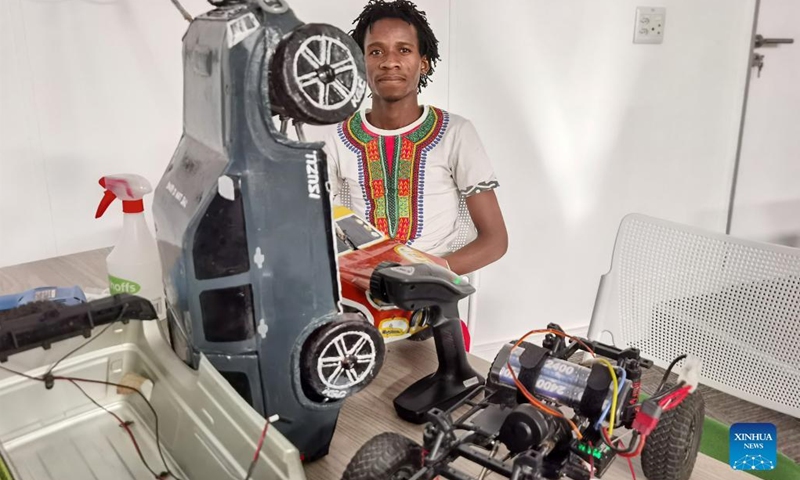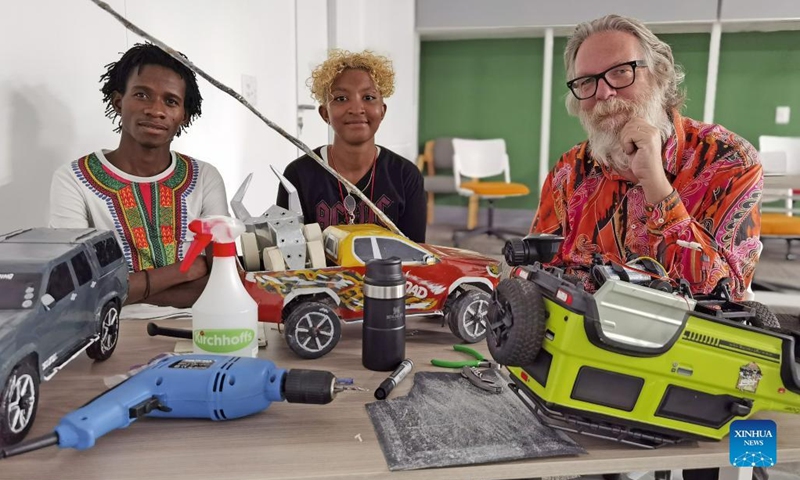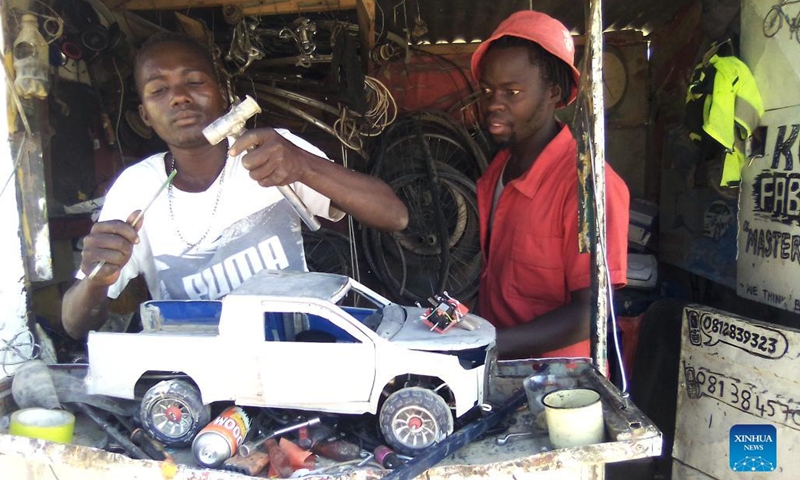
Gideon Katjimba, a self-taught engineer at Kunene General Company, displays toy cars enhanced with digital features in Windhoek, Namibia, on Aug. 30, 2022. Young street engineers from Opuwo town in Kunene region, north-western Namibia, are integrating robotics into hand-made toy cars to capture new business opportunities.(Photo: Xinhua)

Gideon Katjimba (L), a self-taught engineer at Kunene General Company, is seen with representatives from the Future Lab Technology at the University of Namibia in Windhoek, Namibia, on Aug. 30, 2022. Young street engineers from Opuwo town in Kunene region, north-western Namibia, are integrating robotics into hand-made toy cars to capture new business opportunities.(Photo: Xinhua)

Young men assemble toy cars at a workshop in Opuwo town, Kunene region, Namibia, on Aug. 30, 2022. Young street engineers from Opuwo town in Kunene region, north-western Namibia, are integrating robotics into hand-made toy cars to capture new business opportunities.(Photo: Xinhua)
Young street engineers from Opuwo town in Kunene region, north-western Namibia, are integrating robotics into hand-made toy cars to capture new business opportunities.
Before, the cars were assembled by reinforcing metal sheets with strong wires and coated with paint before adding a lengthy wire steering wheel.
"Digital technology has now pushed the production process, from the design stage of the toy cars, exploring how we incorporate features such as sensors, lights, sound, and how we can make them self-driving, among others," said Gideon Katjimba, one of the four self-taught engineers at Kunene General Company (KGC) who started making toy cars in 2017.
"Digital technology presents opportunities to grow informal businesses like ours," he said Tuesday, adding that it takes the team a minimum of three and 10 hours to make a car, depending on its size, make, and features.
Most rural children in remote areas far from metropolitan towns do not have access to quality toys, according to Nguhamuine Muharukua, founder of KGC.
"We address this gap by delivering products that entice them and inspire curiosity and hope," Muharukua said.
Building toy cars has also transformed the lives of youngsters without tertiary education or professional training.
"We sell between two and three cars daily, each at an average price of 300 Namibian dollars (U.S. 20.15 dollars)," Katjimba said.
Meanwhile, the venture has attracted new opportunities for collaboration from academia.
The University of Namibia supports the experiment. Professor Erkki Sutinen, head of the Future Lab Technology at UNAM, said the project links the self-taught automakers with academic students at the university to re-model the toy cars.
